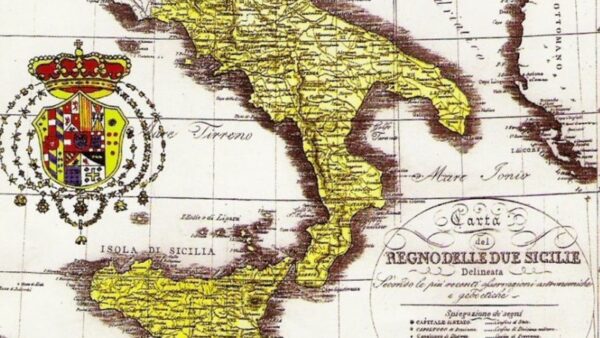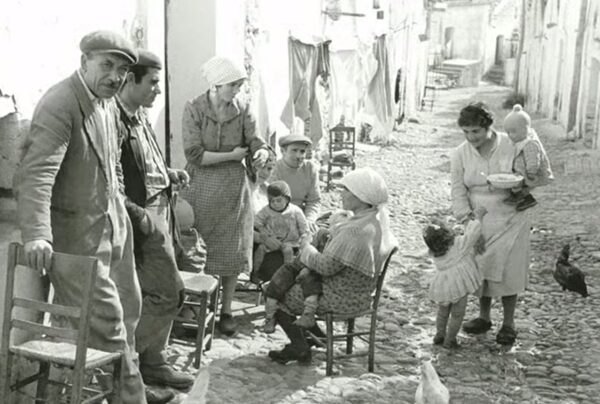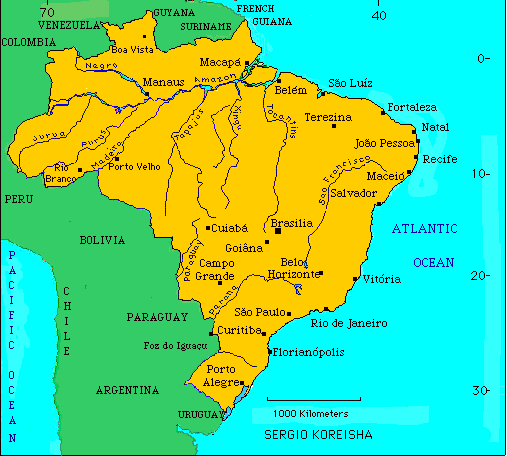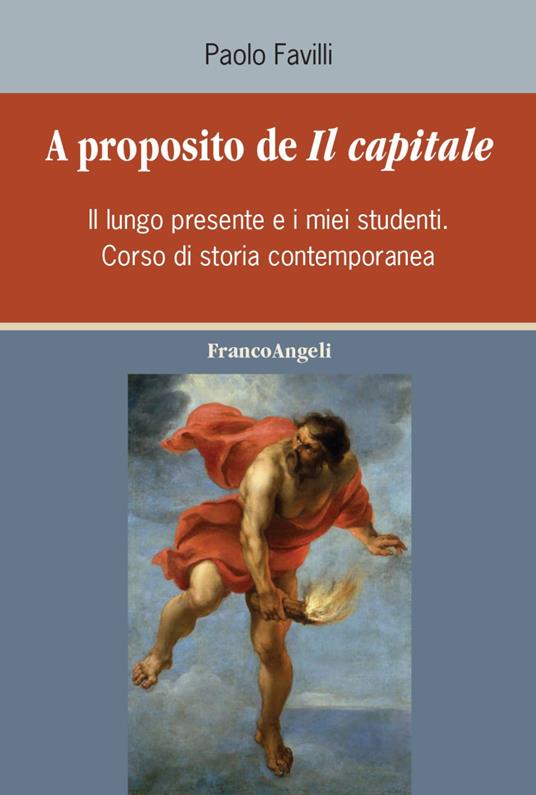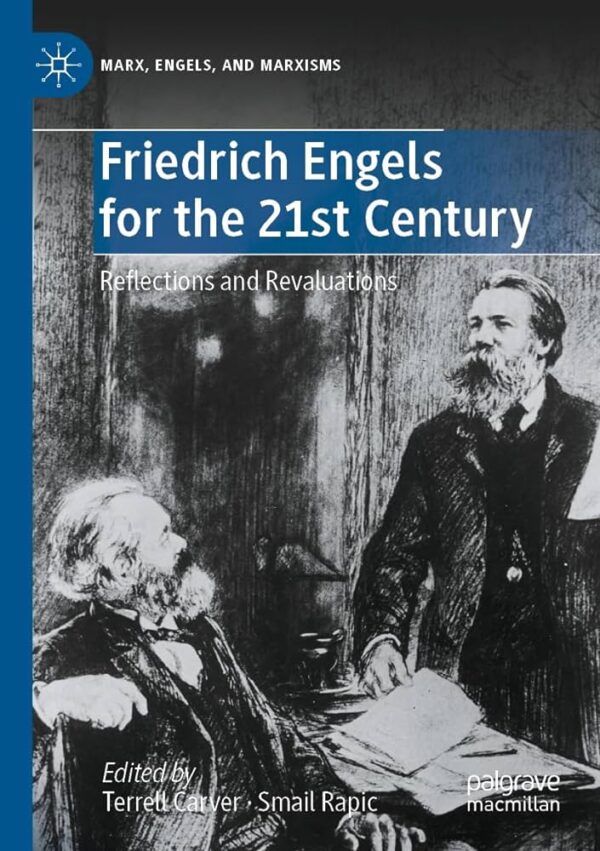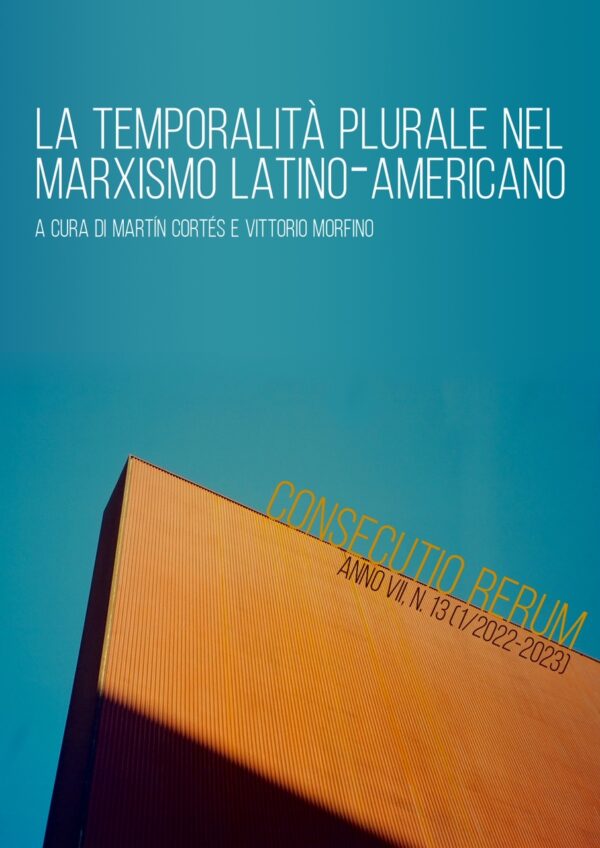A partire da Gramsci.
Aspetti e problemi della questione meridionale oggi
a cura di Paolo Desogus e Marco Gatto

Paolo Desogus: Sorbonne Université (paolo.desogus@sorbonne-universite.fr; Orcid: 0009-0006-1803-4040);
Marco Gatto: Università della Calabria (marco.gatto@ unical.it; orcid: 0000-0002-5223-471X).
All’interno degli studi gramsciani e in particolare nelle più recenti ricerche si possono riconoscere due tendenze: la prima, riconducibile soprattutto all’ambito di ricerca italiano, si è proposta di storicizzare la riflessione meridionalistica di Gramsci e di ridefinirla nel contesto della prima metà del Novecento attraverso lo studio delle fonti, dei confronti intellettuali, della direzione politica del Pcd’I e degli stretti legami con gli esiti più avanzati della produzione carceraria; la seconda, facente capo al … Continua a leggere
Università degli Studi di Pavia (giuseppe.cospito@unipv.it; ORCID: 0000-0002-0978- 0467).
The Southern Question in Gramsci’s writings from the Turin and ordinovist periods
Abstract: This essay aims to demonstrate the relevance of the “Southern Question” from Gramsci’s early theory and politics onwards. Since his high school education in Sardinia, Gramsci was faced with the underdevelopment of his native region, which he believed could be overcome via political independence and autonomy. Yet, he soon realized the nation-wide dimension of this issue, rooted in the thousand-year old political division of the country, and in … Continua a leggere
Sorbonne Université (paolo.desogus@sorbonne-universite.fr; Orcid: 0009-0006-1803- 4040).
Gramsci’s Southern Question from the economic-corporative to the ethical-politic
Abstract: This essay analyzes Antonio Gramsci’s evolving perspective on the Southern Question from 1911 to 1926, the period of his arrest. It specifically scrutinizes both his writings and the various political developments that transformed Gramsci from a socialist activist into the foremost political leader of the Communist Party of Italy and a prominent figure within the Communist International. The main objective of this study is to shed light on a philosophical and political journey marked by theoretical … Continua a leggere
Istituto per la Storia del Pensiero Filosofico e Scientifico Moderno, Consiglio Nazionale delle Ricerche (roberto.evangelista@ispf.cnr.it; ORCID: 0000-0003-0334-9462).
Fata morgana in the suburbans neighboroughs Coree. The Southern question between mirage and miracle.
Abstract: The essay aims to consider some aspects of the Southern question, starting from the situation of emigrants in Northern Italy in the 1950s. This work considers two very important texts (Milano, Corea. Inchiesta sugli immigrati, and Stato e sottosviluppo), which allow us to consider the economic aspects and political choices that determined the phenomenon of internal Italian … Continua a leggere
Università della Calabria (marco.gatto@unical.it; orcid: 0000-0002-5223-471X).
An unrestricted universalism. Southern question and class struggle in Edward W. Said and Ernesto de Martino
Abstract: The article aims to set up a path of reflection capable of dialectically tightening the concepts of universalism, Orientalism, the Southern question and class conflict, considering the fundamental contribution of Edward W. Said and Ernesto de Martino, two authors who have so far, unjustly, not been juxtaposed.
Keywords: Universalism; Southern Question; Orientalism; Nation; Identity. … Continua a leggere
Università degli Studi di Urbino “Carlo Bo” (giacomo.tarascio@uniurb.it; ORCID: 0009-0004-2898-7801).
Trough Margins and Subalternity. A Gramscian Political Key to Think about the South of Italy
Abstract: The idea of subaltern groups is one of the most notable Gramscian concepts that has become part of the global historical-political lexicon, and not only that: the work on the Southern Question has been integrated into the broader discourse of the Global South. If these new views, on the one hand, had the merit of spreading some of the key terms from Quaderni del carcere beyond … Continua a leggere
Università degli Studi di Camerino (francescomaria.tedesco@unicam.it; ORCID: 0000- 0001-9577-8250).
The Meridian thought as anti-popular Mediterraneism
Abstract: About five years after the publication of my book Mediterraneismo. Il pensiero antimeridiano (Meltemi 2017), I still wonder whether it was necessary to publish such a text. This contribution is an attempt to formulate an answer to that question. An answer that, in my opinion, is affirmative. And it is so because not only are the traces of what I had defined in the book as Mediterraneanism of the first kind (of backwardness) still widespread; but … Continua a leggere
Università degli Studi di Roma Tre (roberto.finelli@uniroma3.it; Orcid: 0000-0003-1444-4756)
Abstract: The purpose of this essay is to critique the traditional interpretation of Ludwig Feuerbach’s philosophy as belonging to the materialist and anti-idealist tradition. Instead, the author argues that underlying Feuerbach’s anthropology is a metaphysics of ‘Genus’ (Gattung in German) conceived as an organic and communitarian universality. Behind Feuerbach’s apparent materialism and sensualism lies a spiritualist doctrine of essence, according to which human beings participate in principle in a common life in which individuals integrate and add up their differences without conflict and opposition. … Continua a leggere
Portland State University (bbg2@pdx.edu; Orcid: 0000-0001-8295-3216).
Abstract: Our cultural situation is to seek a moral form of self-constitution, rather than an ontological or epistemological foundation. Such a moral ground lies in the paradox of willing surrender of the will to do wrong or dysfunctional acts in order to enter temporally-extended processes of moral change. But the paradox of willing surrender of the will requires analysis. The propositional form of it cannot be sustained and must instead give way to willingness as an ongoing choice. The self-reflexivity of the will with which we accomplish … Continua a leggere
Università degli Studi “Guglielmo Marconi” (maurizio.maione63@gmail.com; ORCID: 0009-0000-3337-7881).
The Linguistic-Cognitive Dimension in Wilhelm Wundt’s Psychology
Abstract: This essay is aimed at examining Wilhelm Wundt’s theoretical interest in the genesis and nature of human language according to the methodology of experimental psychology whose theoretical tools also are decisive for the understanding of some linguistic writings published since 1900. There are three points which I will focus on: 1) the procedural-relational nature of mental events; 2) the examination of the processes of volition (Entscheidung and Entschließung) and apperception and, finally, 3) the … Continua a leggere
Universidade de São Paulo (USP), Brasile (homero@usp.br; ORCID: 0000-0002-0610- 9993).
Spinoza against the Brazilian military dictatorship
Abstract: In this paper we intend to study one component of the vast set of works dedicated to Spinoza by Brazilian philosopher Marilena Chaui, namely her doctoral thesis Introduction to the reading of Spinoza defended by Chaui in 1971 at the University of São Paulo. Even though it was elaborated during the French rediscovery of Spinoza in the 1960s, the thesis evokes less the libertarian slogans of Paris May 1968 than the dictatorship installed in … Continua a leggere
jclbourdin@gmail.com; Orcid: 0009-0001-2488-0319.
“Communism of spirits”. Hölderlin with Saint Paul
Abstract: The intention of this article is to identify what the short text attributed to Hölderlin might evoke in relation to the enigmatic title, which is not his own, “Communism of the spirits”. It will highlight Hölderlin’s ideas on community and show that the ‘communist’ passages in his writings are paraphrases of St Paul. Hölderlin argues that community is what we lack. His conception of community is based on an ontology of being as One and All immanent to individuals. It … Continua a leggere
Doi: 10.5281/zenodo.10284211
Doi: 10.5281/zenodo.10284617
Martín Cortés: CONICET (martincortes@conicet.gov.ar; ORCID: 0000-0002-3338- 5133);
Vittorio Morfino: Università Milano Bicocca (vittorio.morfino@unimib.it, ORCID: 0000-0003-4512-9759).
Ernst Bloch nel suo libro del 1935, Erbschaft dieser Zeit (Eredità di questo tempo), riprendendo un giudizio espresso a più riprese da Marx, scrisse a proposito della Germania:
[è] il paese classico della non contemporaneità [klassische Land der Ungleichzeitigkeit], ossia dei residui non superati di un’esistenza e una coscienza economica più antiche. […]
University of Michigan (svillal@umich.edu; ORCID: 0000-0002-9570-6780).
Latin American Marxism as Critique of the Philosophy of the History of Capital
Abstract: The following article is a panoramic presentation of what might be considered as the defining problematic of Latin American Marxism. However, far from claiming a substantive notion of Latin American Marxism, we attempt to show how the kind of questions elaborated within this horizon are relevant not only for the critique what has been erroneously conceived of as peripherical capitalism, but for the history and critique of capitalism as such, understood as … Continua a leggere
University of Michigan (alejo@umich.edu; ORCID: 0000-0001-5783-2797)
José Carlos Mariátegui
Abstract: In what follows I will provide some elements for constructing Mariátegui’s plural spatiotemporal conception of history. I will do so by primarily focusing on the two books he published in his lifetime: The contemporary scene and Seven Interpretive Essays on Peruvian Reality. It a footnote in the Seven Essays, the reader encounters a concept that opens up the problem of plural temporality in Latin American Marxism: relativismo histórico (historical relativism). This will be the keystone concept upon which certain fragments of … Continua a leggere
IDH-UNGS/CONICET (diegogiller@gmail.com; ORCID: 0000-0001-7117-9608)
 René Zavaleda Mercado
René Zavaleda Mercado
René Zavaleta Mercado: Latin American Marxisms, National Stories, Abigarradas Social Formations
Abstract: The present work seeks to replenish the problem of the temporalities superimposed in the work of the Bolivian René Zavaleta Mercado (1937-1984). To do this, you work on three combined planes. First, the conditions of possibility of Marxism in Latin America from its possible conjugation with the national stories and the struggles that those stories suppose, that is, the complex link between the universal and the local, between Europe and Latin America, between … Continua a leggere
Università “Ca’ Foscari” di Venezia (mariaturchetto5@gmail.com; ORCID: 0000-0003- 4967-7103)
Raul Prebisch
Against the Idea of Progress. Raúl Prebisch and the Latin American dependentista School
Abstract: For two centuries we have thought about temporality and history with the category of progress: from the first formulations of the Enlightenment to the Rostow theory of development stages. An important criticism of the latter author comes from the Latin American dependentista school which – starting with Raúl Prebisch – explains the differences in economic development not in temporal terms (backwardness / modernity) but in spatial and geopolitical … Continua a leggere
CONICET (martincortes@conicet.gov.ar; ORCID: 0000-0002-3338-5133)
 José Aricó
José Aricó
José Aricó, Plural Temporality and the Question of the Nation: Towards Marxism as a Theory of Translation
Abstract: This text intends to underline the centrality that the problem of plural temporality has in the work of José Aricó, especially in his reflection on the conditions of possibility of a Latin American Marxism. For this, his book Marx and Latin America is fundamentally analyzed together with a set of notes and drafts from his archive regarding it. It is argued that, in Aricó, the key to a reading … Continua a leggere
Università degli Studi di Milano-Bicocca (vittorio.morfino@unimib.it; ORCID: 0000- 0003-4512-9759)
Juan Carlos Portantiero
Gramsci Theorist of the Conjuncture according to Juan Carlos Portantiero
Abstract: The article shows the reading of Gramsci offered by Portantiero, a reading that not only enhances aspects of Gramsci’s work on which later critics will dwell extensively, but also connects them, subterraneously, without making it explicit, with the theory of differential temporality, the theoretical heart of Reading Capital. This extraordinary theoretical operation, carried out from Mexican exile during the dictatorship, makes it possible to read not only a “new” Gramsci, … Continua a leggere
IIGG–CONICET (ramiro.parodi@hotmail.com; ORCID: 0000-0002-8331-1343)
Álvaro García Linera
The Problem of the Plural Temporality in Álvaro García Linera
Abstract: The article aims to introduce the problem of plural temporality in the work of Álvaro García Linera as a contribution to 21st century Marxism. The proposal is to define plural temporality as a problem of materialist tradition based on the reflections of Vittorio Morfino and Natalia Romé. We mention four characteristics that seem fundamental to us since they return in the work of García Linera: 1) the repositioning of a theory of time as non-contemporary; 2) … Continua a leggere
Università. di Brasilia (giovanni.zanotti86@gmail.com; ORCID: 0000-0001-8800-
Uneven and Combined: The Reinterpretation of the Dialectic in Brazilian Critical Theory
Abstract: This article briefly introduces three texts from the tradition of Brazilian critical theory, whose Italian translations are presented here for the first time: Roberto Schwarz’s inaugural essay As ideias fora do lugar (“Misplaced ideas”, 1972), Paulo Arantes’s A fratura brasileira do mundo (“The world’s Brazilian fracture”, 2001), and a recent scholarly contribution by Luiz Philipe de Caux and Felipe Catalani. Following the reconstruction of the Brazilian debate on the “point of view of periphery” offered … Continua a leggere
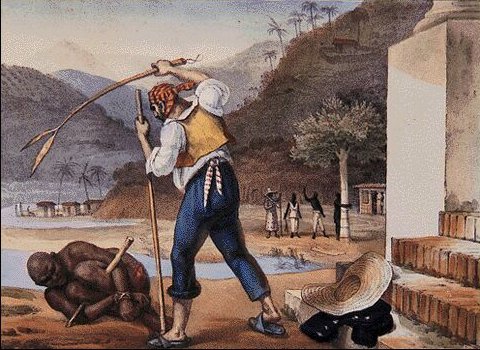 Schiavitù in Brasile, Jean Baptiste Debret
Schiavitù in Brasile, Jean Baptiste Debret
Misplaced Ideas
Abstract: This essay, written in 1972, is one of the cornerstones of Brazilian critical theory. From the standpoint of literary criticism, with a special focus on Machado de Assis’s late work, it analyzes the ideological mechanism of 19th-century Brazilian society, where European liberal ideas are “misplaced”, i.e., contradicted by slavery, yet are absorbed according to a peculiar logic, regardless of their own content. Precisely such “second-degree ideologies”, however, allow for a more intuitive understanding of liberalism’s intrinsic contradictions and an original … Continua a leggere
 invio in corso...
invio in corso...
